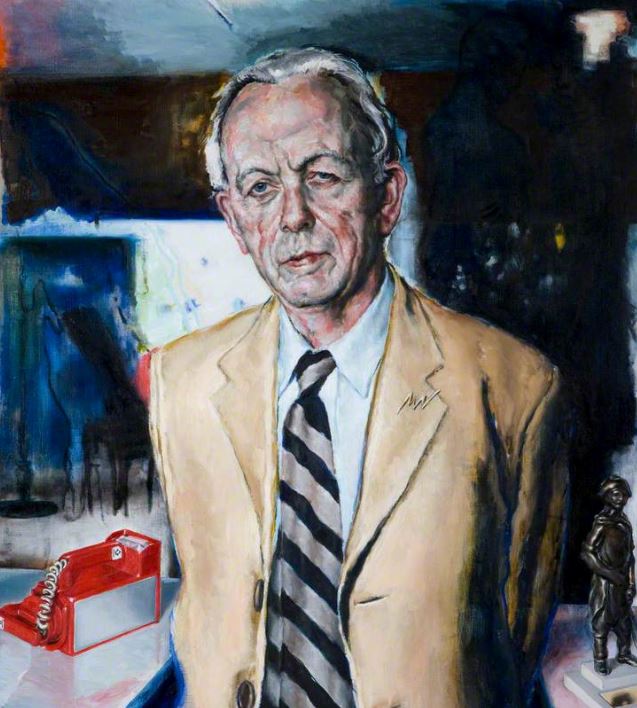Remembering Frank Pantridge, eminent Queen's graduate 
19 October 2015
The former member of University staff, eminent cardiologist, Queen’s graduate, Royal Army Medical Corps doctor and POW, Frank Pantridge, has been remembered by having an Army Reserve Centre named in his honour.
Belfast's Sunnyside Street military base – which is home to the 253 North Irish Medical Regiment – was officially renamed the Pantridge Army Reserve Centre at an unveiling ceremony on 18 October by The Lord Lieutenant of Belfast, Fionnuala Joy-O’Boyle, CBE, who is also a graduate of Queen’s.
Professor Frank Pantridge, who was known as the ‘father of emergency medicine’, invented the portable defibrillator in 1965. The device has saved innumerable lives around the world since Pantridge first developed his prototype using two car batteries and weighing 70 kilos.
Speaking at the ceremony, Jamie Baxter, commanding officer of the 253 North Irish Medical Regiment, said: “Frank Pantridge is a well-known person in Northern Ireland but actually, we don’t think he’s well-known enough and one of the reasons we want to rename this place in honour of him is to further advertise his name.
“I think there’s just a real, strong connection between his time as a soldier and a clinician…so there’s a real connection between the work we do as a medical regiment and the work that Professor Pantridge did.”
James Francis Pantridge was born on 3 October 1916 in Hillsborough, Co Down into a family of small landowners. His father died when he was 10. Expelled from several schools he completed his secondary education at Lisburn Friends' School before coming to Queen’s to study medicine. In his second year he contracted near fatal diphtheria but he still managed to graduate near the top of his class in 1939 and to qualify as a doctor.
On leaving Queen’s, Frank Pantridge was given a prestigious house job at the Royal Victoria Infirmary, known then as the Vic, in Belfast. The Second World War broke out one month later and, although conscription was not compulsory in Northern Ireland, Pantridge volunteered for the Royal Army Medical Corps. In April 1940 he was called up and posted to Singapore.
After the fall of that ‘impregnable fortress’ to the Japanese in February 1942, Pantridge was imprisoned in the infamously brutal Changi prisoner of war camp. Alongside 7,000 British and Australian prisoners, he was conscripted into the F Force of POWs and laboured on the Siam-Burma railway, where he almost died of cardiac beriberi. In 1942 he was awarded the Military Cross.
Continuing his work in medicine after the war, Frank Pantridge installed the first portable defibrillator in a Belfast ambulance in 1965 while based at the Royal Victoria Hospital. Weighing in at 70kg, the weight of an average man, the device wasn't all that portable but after years of refinement using a capacitor designed by NASA, and it now weighs 3kg.
The device was subsequently fitted into every UK ambulance in what came to be called the Pantridge Plan, since when it has saved countless lives both at home and abroad. At the time Belfast acquired a reputation as the best place in the world to have a heart attack.
He served on the staff of the Royal Victoria Hospital and of Queen's from 1945-82; was a Research Fellow at the University of Michigan from 1948-49; Director of the Regional Medical Cardiology Centre, Northern Ireland 1977-82 and an Honorary Professor of Cardiology at Queen’s from 1982-2004. In 1978 he was awarded a CBE.
Frank Pantridge died in Hillsborough on Boxing Day 2004, aged 88. His death did not receive widespread media coverage due to the devastating Tsunami which swept across much of Southeast Asia on the same day.
For more on supporting medical research at Queen’s visit the Development Office website or contact Helen Surgenor, (Head of Medical Fundraising), tel: 028 9097 1568.
Back to Main News
Top of Page